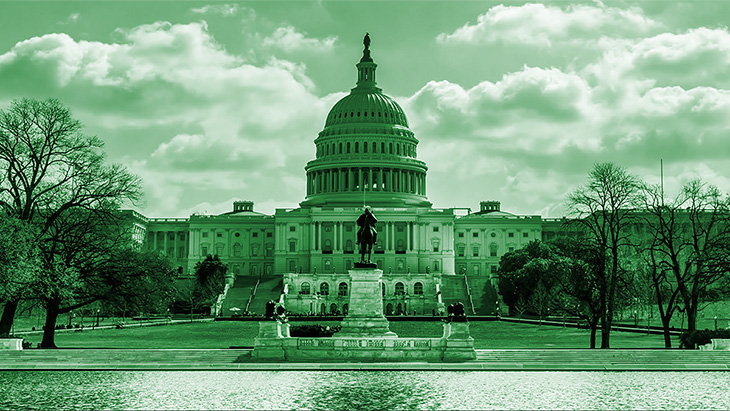In the newly released annual spending packages by the Senate Appropriations Committee, cannabis policy is scantly mentioned yet by omission, it could advance a critical element of reform that has long been pushed for by NORML and other allies.
In the proposed FY22 Financial Services and General Government spending bill, which includes provisions relating to the District of Columbia’s budget, the House Appropriations Committee omitted an existing provision that prevents Washington, DC from implementing an adult-use cannabis consumer marketplace.
The District legalized marijuana possession and home cultivation under a voter initiative in 2014, but Congress through the imposition of a budget rider has prevented the local government from using its resources to create a licensed and transparent commercial sales program.
Notably, when the Biden Administration released their proposal spending package earlier this year, the budget included this restriction. At the time, DC Representative and cannabis policy reform champion Eleanor Holmes Norton said, “I am having a hard time reconciling the administration’s strong support for D.C. statehood, which would give D.C. not only voting representation in Congress but also full local self-government, with a budget that prohibits D.C. from spending its local funds on recreational marijuana commercialization. With Democrats controlling the White House, House and Senate, we have the best opportunity in over a decade to enact a D.C. appropriations bill that does not contain any anti-home-rule riders.”
The omission of the DC rider acknowledges the local will of the residents of the District, who overwhelmingly favor retail marijuana sales. The only reason the District is unable to defy the federal government’s marijuana prohibition policies in the same way that other states have is that it lacks statehood and is under direct oversight from Congress.
In the previous two years, the House appropriations package has excluded the DC rider, only to have it included in the final package by the then-Republican controlled Senate Appropriations Committee under Chairman Shelby (R-AL).
Additionally included in the rollout of packages, the proposed Senate CJS annual appropriation bill maintains a continuation of the existing spending restriction on the Department of Justice to protect state-legal medical cannabis programs which have been in place since 2014.
Now both chambers must advance their full suite of appropriations packages and send them both to a conference committee for final negotiations. So far the House packages have additional reform provisions that are not reflected in the Senate proposals. They include the SAFE Banking amendment and revisions of federal employment drug testing policies to the existing blanket requirement for pre-employment and random drug screening. The House additionally was slated to vote on expanding the DOJ spending restriction to protect adult-use states as well but that vote has been postponed to a delay in the underlying CJS appropriations package being considered.
You can read NORML’s full memo on the appropriations process here.
You can used NORML’s action alert to tell your federal officials to not allow the Department of Justice to take action against any state legal cannabis program here.
Related
Medical Disclaimer:
The information provided in these blog posts is intended for general informational and educational purposes only. It is not a substitute for professional medical advice, diagnosis, or treatment. Always seek the advice of your physician or other qualified healthcare provider with any questions you may have regarding a medical condition. The use of any information provided in these blog posts is solely at your own risk. The authors and the website do not recommend or endorse any specific products, treatments, or procedures mentioned. Reliance on any information in these blog posts is solely at your own discretion.





